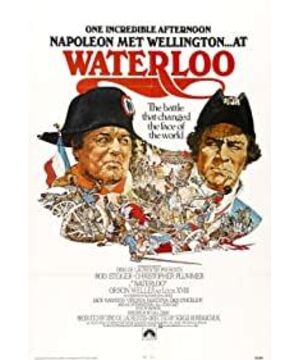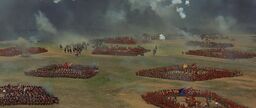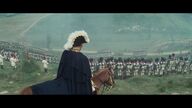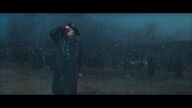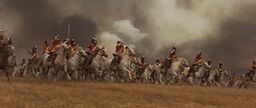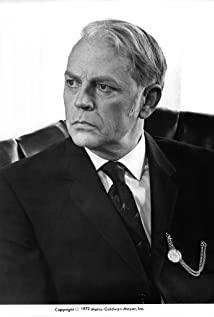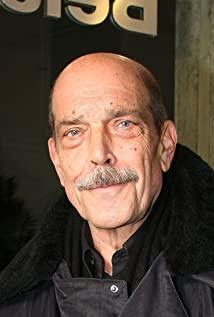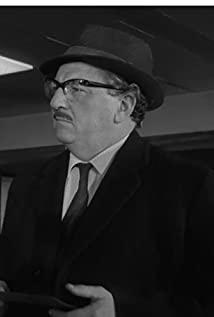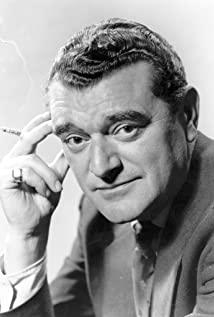These days are very busy, with comrade-in-arms gatherings and travel. When I come back, I will be busy with my grandson again. I haven't watched a movie in half a month. Take the time to watch one and make up for the homework.
The film is about the Battle of Waterloo. Compared with Austerlitz's great victory, this battle was a great defeat and Napoleon's last battle.
After the Battle of Leipzig, Napoleon was dispatched to Elba Island. Although he launched the Hundred Days Coup with astonishing arrogance, at this time, he was already a hero. In the face of the British-Prussian-Austrian four-nation coalition, he no longer had the self-confidence and keen judgment of his early years. According to common sense, to govern a country is to govern officials, and to use soldiers is to use generals. But in the film, we see that is not the case at all. He chose Nye as the commander-in-chief of the campaign. There is a big problem with this. After returning to the Bourbon dynasty, Ney once boasted to Louis XVIII that he would use an iron cage to bring Napoleon back. Although he complied with the general trend and returned to Napoleon's camp, it can be seen that his loyalty is in doubt. In addition, Napoleon should know that Nei is a brave and resourceful Lu Bu, who can lead troops to kill, but strategizing is not a good hand. In addition, Napoleon arranged for Grouchy to contain the Prussian army, which is also worth pondering. When a general leads troops, in addition to executing orders, they must also think globally. This is what the so-called "governing outside the monarch's orders will not accept". Grouchy led one-third of Napoleon's troops, and according to Napoleon's order, he headed to Wavre to find the Prussian army. The result of this use of generals became the fundamental reason for the failure of the Battle of Waterloo.
At the beginning of the battle, Napoleon ordered Ney to occupy the crossroads of Four Arms in order to divide the British and Prussian troops. At that time, the British army guarding the village of Four Arms was only 4,000 people, and the French army in Ney had 40,000 people, ten times that of the British army. But Nai hesitated inexplicably, leading to the arrival of the Wellington army. If Nye attacks again, it will be completely useless. They had to lead the cavalry to attack the phalanx of the British army in Ugomeng, and suffered heavy casualties. The defeat of Napoleon is from here. Look at Grouchy's approach. At that time, Blucher had already taken the main force of the Prussian army to join the British army, while Grouchy was just fighting with the rear guard of the Prussian army in Wavre. In the film, Grouchy's lieutenant persuaded him to turn to rescue Napoleon, but he said: "I want to carry out the emperor's orders." As a result, when Napoleon needed troops the most, the Prussian army was waiting. A fatal blow to Napoleon's flank. I think that if Grushi is replaced by generals like Ding Sheng, Wang Jinshan, and Zhong Wei, the ending must be different.
Napoleon's own performance in the film is also very general. Rather than saying that he is the commander-in-chief and the emperor, it is better to say that he is a spectator. Most of the time, he was just in the headquarters of his Jiainzhuang Village, habitually holding the index finger and middle finger of his right hand with his left hand, pacing back and forth, doing nothing. Nye failed to attack Four Arms Village, and Napoleon just said angrily: "France is ruined in your hands." No more words, and still let Nye continue to make mistakes and blindly command. When Ney's cavalry attack was thwarted, Napoleon had a good way of defeating the British. He was born in artillery. He once said: "Great battles are won with artillery." In Ugomont, the British army formed dozens of phalanxes in order to resist the impact of the Ney cavalry, typical of densely exposed infantry, If you concentrate all the artillery and fire a few hurriedly, it will definitely cause heavy damage to the opponent. But he did nothing. Seeing this, I even had to suspect that the emperor was fighting alone.
There are always the most glorious moments in a person's life. If he can judge the situation and retreat bravely when his career reaches its peak, then what will be left to future generations will be his greatness and glory. It's a pity that almost all the greats and heroes can't realize when is his peak, always thinking that what awaits him is greater glory. Their life curve is never always upward, but always a sine curve. Napoleon was the same. When he led the army over the Alps to the top, he proudly said: "I am higher than the Alps!" Napoleon did not see at this time, the road ahead was going down the mountain. Napoleon started from Toulon, to suppress the remnants of Bourbon, to the expedition to the East, to Ulm, to Austerlitz, invincible. Although there were failures in Spain, this setback was nothing compared to his brilliant record. In fact, Napoleon's first step in falling to the top began with an expedition of 500,000 troops to Moscow. Kutuzov implemented the policy of not being provoked and hiding, avoiding the war all the way, and only arranged for the harassment of the guerrillas. This made Napoleon unable to fight, so he could only starve all the way, and let the cold wind of Russia raged. In the end, the lion was dragged down. What Russia won not only won, but more importantly destroyed Napoleon's spirit.
At the beginning of the film, when the generals headed by Nye were trying to persuade Napoleon to abdicate, Napoleon said to him, "Oh, Nye, the throne? Do you know what a throne is? It's just an over-decorated piece of furniture. That's all. What's really valuable is what's on the throne. My brain, my ambitions, my pursuits, my hopes, my imagination, and above all that is my determination!" Indeed. After that, Napoleon escaped from Elba Island in the most incredible act, and did not pass through Italy, but led a mere 1,000 people back directly to France, created a 100-day coup, and quickly organized an army of 200,000 to fight against the whole of Europe . How majestic! However, behind these appearances, we faintly feel that his ambition, his imagination, his pursuit, his hope, especially his determination, have long since vanished. These were all lost when Napoleon fled back to Paris from Moscow in a sleigh. The outcome of the Battle of Waterloo was not due to providence or luck, nor to the planning and strategy of the battle. From the beginning to the whole process, we have lost sight of the confidence and arrogance of Napoleon's glory days. Failure is the inevitable result. I even imagined that perhaps Napoleon had expected this result before the war began. Perhaps it was Napoleon's intention to leave a sympathetic and tragic figure for the world at last?
The film once again shows Napoleon's attitude towards the title of emperor. "I never usurped the crown, I found it in the gutter and picked it up with my sword. It was the people who put the crown on my head," he said, referring to the hilarious coronation ceremony , maybe this is what Napoleon really thought? The French people at that time were not familiar with the republic that was born after the Great Revolution, especially the reign of terror during the Jacobin period, which made the people disgust and miss the empire of the past. Napoleon was actually the successor of the French Revolution. The policies, lines and codes he implemented were in line with the ideas of the Enlightenmentists and the original intentions of the revolutionaries in the 18th century. And he had insight into the mood of the people, and in order to accommodate this mood, he would rather repackage the French polity. So there was the French Empire, and the Emperor Napoleon. As he himself said: "Sacrificed for the people."
The film was directed by the famous Soviet director Bondarchuk at that time, and was jointly produced by the United States, the Soviet Union and Italy. It premiered at the Royal Household in London in October 1970. The entire film was shot in the Soviet Union, not the original location in Waterloo. Bondarchuk is indeed an excellent director. A good friend of mine once made a special trip to Bondarchuk in his early years. According to his impression, Bondarchuk's house is very simple, there is only a black and white TV in the house. In the courtyard, however, his four cars were parked. It is in line with his character, and he doesn't care about other people's evaluations. It's good to be real and practical.
In the film, Bondarchuk borrowed the remnants of "War and Peace", the big scenes are very grand, and the small details are very thoughtful. The first half is characterization and foreshadowing, and the second half is narration and display. In the film, the scene of Napoleon's abdication and the dance of the Duchess of Richmond are all very good, recreating the real scene at that time. In particular, the inner worlds of the two main characters, Wellington and Napoleon, are described very delicately. The scene that impressed me the most is the constant transition of the camera before the war, following Napoleon and Wellington, showing how they both line up and speak their inner thoughts in subtle but clear voiceovers. Then, the camera pulls away, pans to the table in the dim light, and we see a map, pencil, and magnifying glass on the table. The camera opened again, and I saw the figures of soldiers and horses outside the window. Finally turned to the distant mountains and saw the rising sun slowly rising in the east. Let people feel deeply: June 18, the day that decides the fate of Europe begins.
In the army, propaganda and agitation were indispensable. In the European army at that time, the agitation method was similar, and there were several propaganda and performance teams in front of the queue. This is also shown in the video. The British army used Scottish bagpipes and a Scottish skirt like the one worn by Xiao Shenyang. Babble babbles non-stop, making people drowsy. I don't know how to mobilize the soldiers' emotions. The French army is a drummer team composed of teenagers, and they are very exciting. I remember reading a novel "Four Little Drummers" a long time ago, which told the patriotic stories of these little drummers.
There is a painting in his hand that everyone has long known. Painted by Jacques-Louis David. It is Napoleon's heroic figure crossing the Alps. When it came to Waterloo in the film, perhaps the food at the imperial meal was better. Napoleon was no longer the handsome guy, but a bloated little fat man, which fit the situation at the time.
Movie stars gathered. Napoleon is played by Rod Steiger. Wellington is played by Christopher Plummer, who plays the colonel in "The Sound of Music" and who sings "Edelweiss." Just as good here. In particular, he suppressed the anxiety and panic in his heart, and his appearance was calm and calm. The proportions are well grasped. Another thing to mention is that Orson Welles played Louis XVIII. His best performance was the lead role in Citizen Kane. Twenty-nine years later, he is no longer the handsome and handsome Kane, and he is already too fat.
In order to write this impression, I deliberately supplemented the historical materials about the Battle of Waterloo. Selected one of four books, "Waterloo: A History of Four Days, Three Armies, and Three Battles" by Bernard Cornwall. The introduction is more comprehensive and understands the general outline of the entire battle. Interested friends can go and see.
My rating: 7.5.
View more about Waterloo reviews


